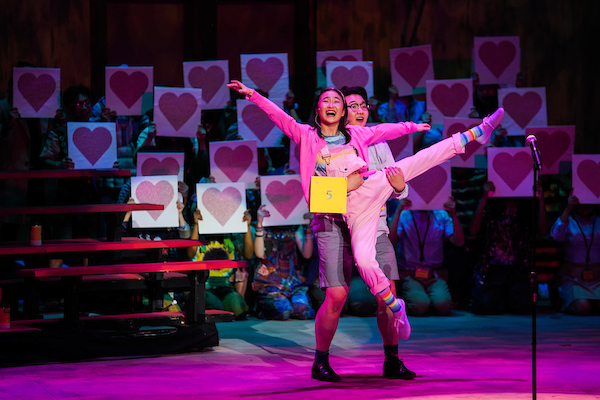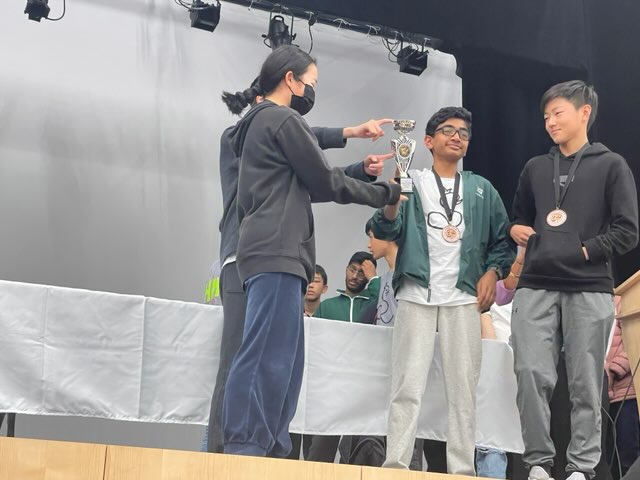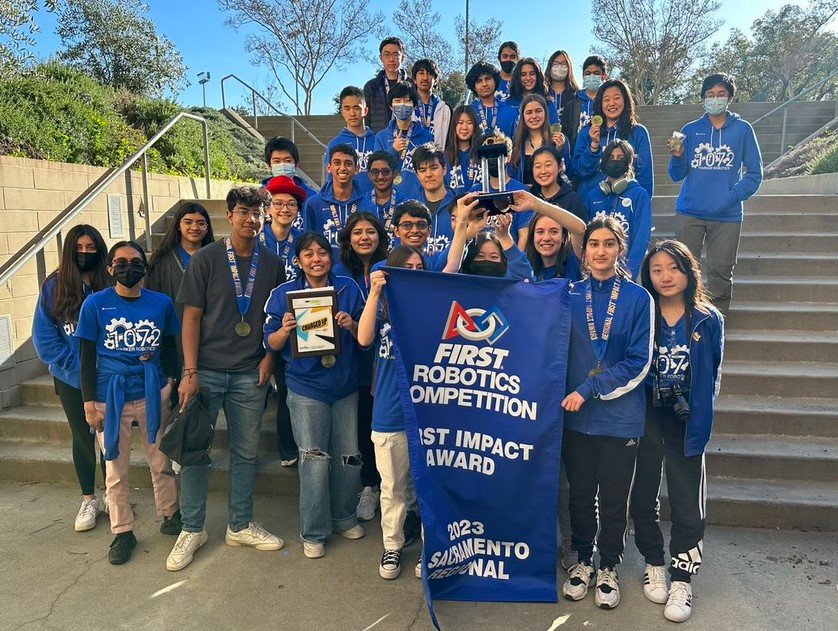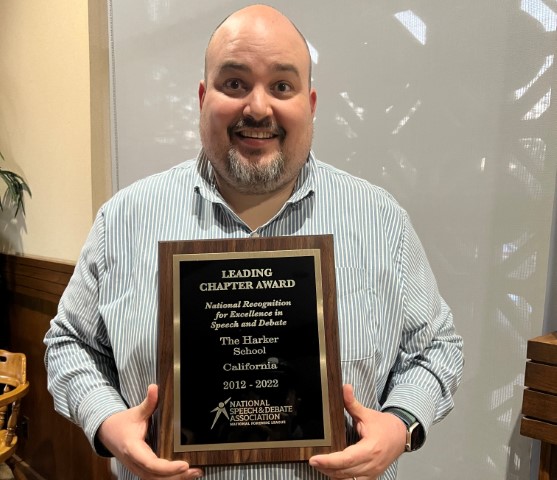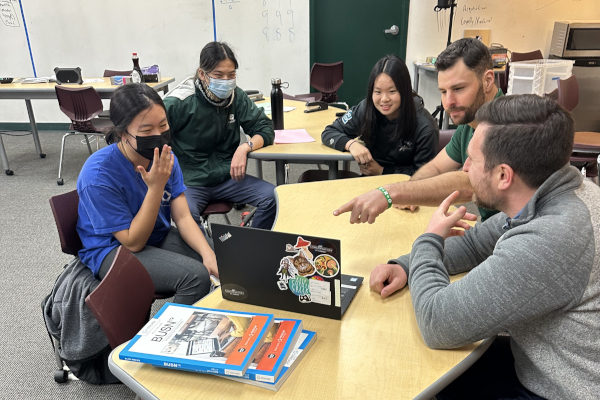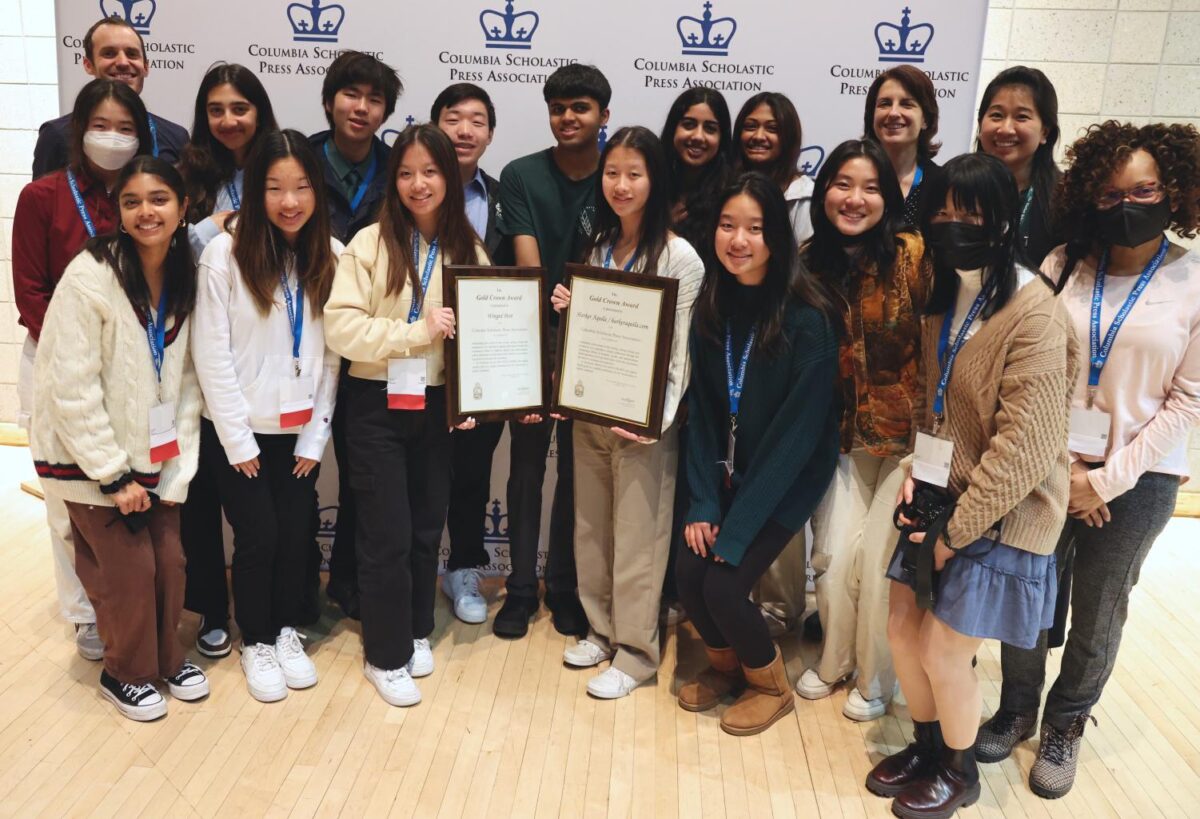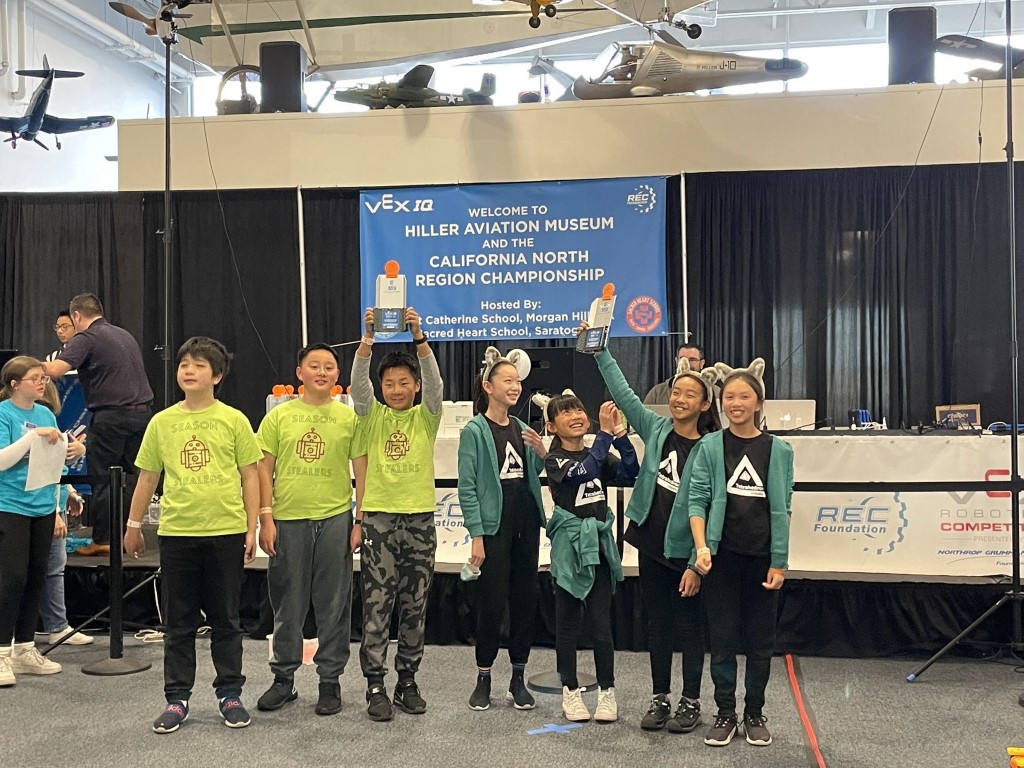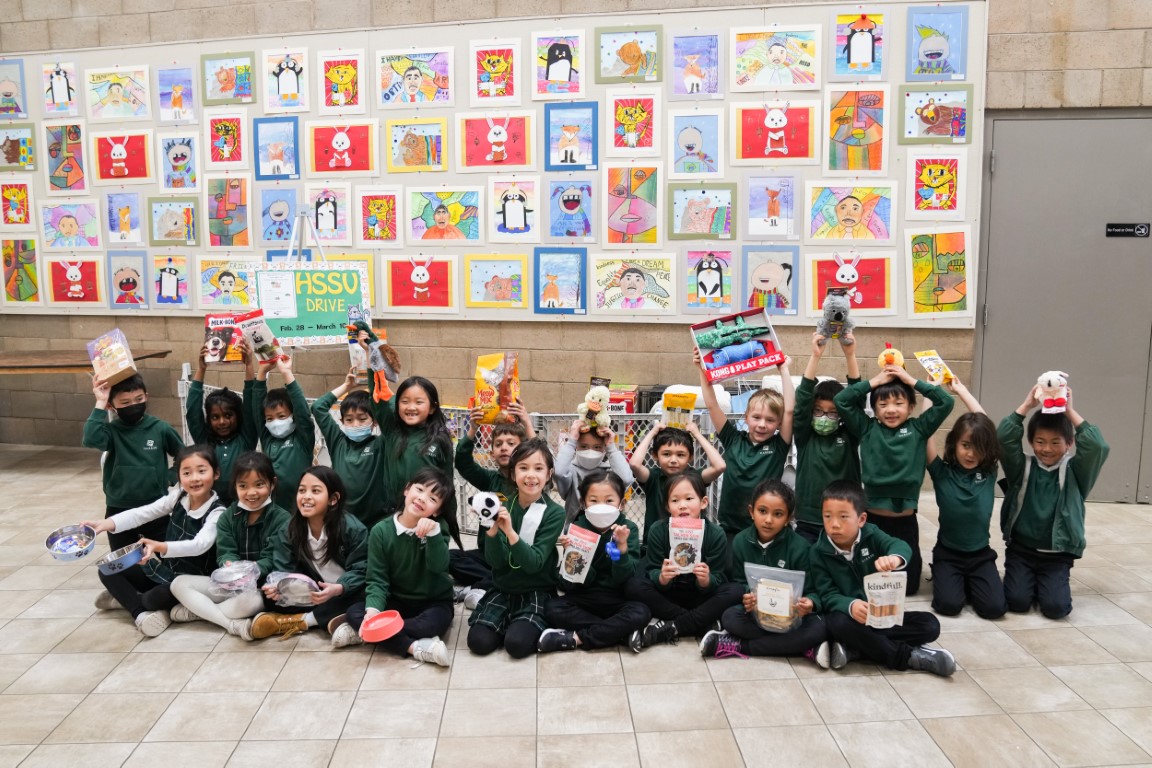The 2023 upper school spring musical, “The 25th Annual Putnam County Spelling Bee,” has been nominated for Rita Moreno Awards for Overall Production and Outstanding Actress (Selina Xu, grade 11).
eweekly
22nd Diana Nichols Math Invitational attracts 380 students
The 22nd Annual Diana Nichols Harker Math Invitational for grades 6 to 8, held March 18 was a highly successful event with 18 schools and about 380 contestants taking part in the individual and team contests.
Upper school robotics wins FIRST Impact Award, bound for Houston championships
Upper school robotics team 1072 received the most prestigious award given by FIRST robotics after performing at the Sacramento Regional.
Upper school debate wins LD nat’l championship, named Leading Chapter
After a four-way closeout, seniors Muzzi Khan and Rahul Mulpuri and juniors Ansh Sheth and Panav Gogte were declared National Speech and Debate Association’s Lincoln-Douglas co-champions.
[Updated] Harker team reaches Wharton Investment Competition finals
Team FRESH.mInD is one of 55 semifinalists from nearly 1,400 entries.
Alum’s plant-based product company highlighted in Forbes feature
Tara Chandra ‘06’s company, Here We Flo, was one of three women-run companies featured.
2023 Near and Mitra salons explore wide range of historical topics
Last week, the scholars of this year’s John Near & Mitra Family Scholar Grant Program conducted salons via Zoom discussing the results of the several months’ worth of research they had carried out in the topics of their choice.
Harker journalism wins two Gold Crowns at CSPA Spring Convention
Harker journalism students attended the Columbia Scholastic Press Association’s Spring Convention at Columbia University and were presented with CSPA Gold Crown awards for Harker Aquila and the Winged Post newspaper.
Sixth graders earn spots at middle school robotics world championship
Two Harker middle school students delivered great results at the Northern California VEXIQ Middle School Regional Championship.
Grade 1 donation drive delivers hundreds of goods to animals in need
First graders sent more than 500 items and more than $300 to the Humane Society Silicon Valley to cap off their annual donation drive.
